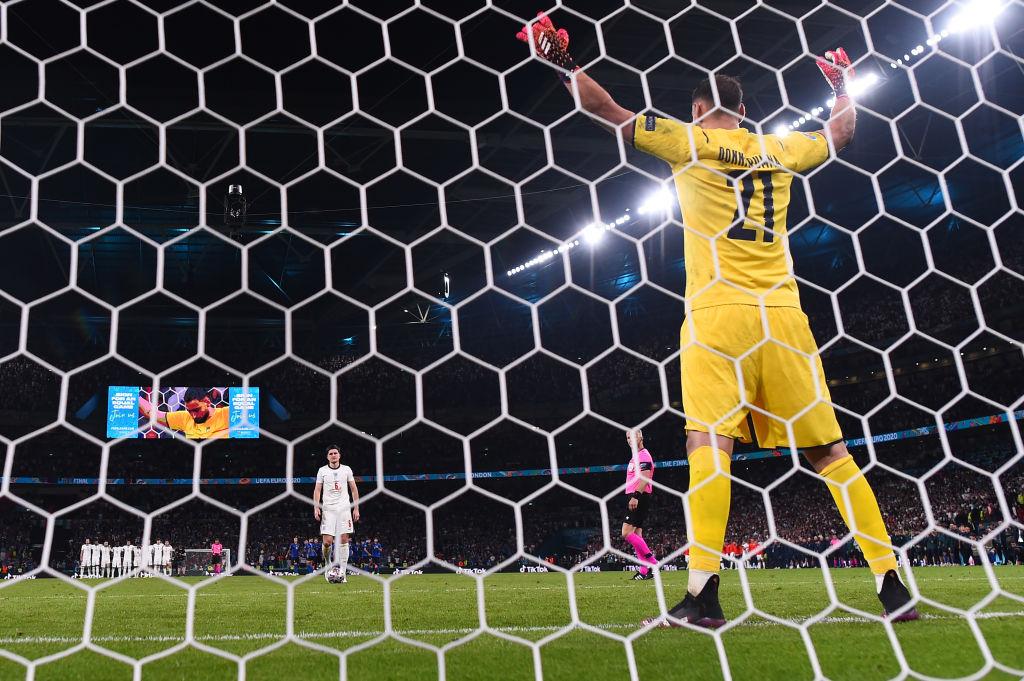Academics find fairer format for penalty shootouts, but will football accept it?

Football took a chance on the ABBA format in the hope of minimising the inherent unfairness of penalty shootouts, but that experiment swiftly met its Waterloo.
Now, though, economists at Durham University have devised a new way of ordering penalty kicks that they believe could change the name of the game.
They tested a score-dependent alternating format, in which the team that is losing at the end of a round of kicks goes first in the next round.
Their research found that it was fairer than both the traditional alternating ABAB and the ABBA formats in both shootouts and sudden-death penalties.
“Economists have long recognised the effect that the order of actions in sequential contests can have on the performance of contestants,” said Professor Nejat Anbarci of Durham University Business School.
“Penalty shootouts in football offer a very clear, and real-life example of these sequences, showcasing whether the order effects the probability that a specific team is likely to win.”
Previous research has found that, in an ABAB penalty shootout, the team that kicks first wins approximately 60 per cent of the time.
With ABBA, Durham’s academics say the competitive advantage is reduced, albeit that the team going first is statistically still more likely to win.
Journalist and consultant Ben Lyttleton, whose book Twelve Yards is perhaps the definitive account of the penalty, says he is “intrigued” by the new study.
“We love to think about fairer ways to decide something as important as a penalty shoot-out,” Lyttleton adds.
“It has been shown that the ABBA method, as used in tennis tie-breaks, does reduce the element of chance and is therefore fairer than the current ABAB system, which hands an advantage to the team kicking first.”
A 2017 trial of the ABBA format in Fifa competitions and some English and Dutch cup fixtures examined 36 shootouts and found that teams who kicked first and second each won 18 times.
It was, says Lyttleton, “a small sample, but this showed a levelling-up of the psychological advantage handed to the team kicking first. This is because in the decisive kicks, it is easier to score the penalty to win a shootout than it is to score the penalty to avoid defeat in a shootout.”
Despite an apparently successful trial, ABBA did not sway the guardians of football’s rules, the International FA Board (IFAB), into recommending its wholesale adoption.
David Elleray, the English former referee and Harrow schoolmaster who is technical director of IFAB, said: “Empirically it seems fairer but it’s a bit confusing.”
IFAB was persuaded to trial ABBA by London School of Economics professor and Athletic Bilbao board member Ignacio Palacios Huerta, who had in fact tried to simplify the format.
His preferred order is a riff on mathematics’ Prouhet–Thue–Morse sequence, which would see shootouts ordered ABBA BAAB BAAB ABBA, and so on, for maximum fairness.
If the relatively simple ABBA was deemed too fiddly for officials and spectators to grasp then that probably has next to no chance, concedes Lyttleton.
What, then, of the Durham model? The university says Professor Anbarci and colleagues at Boston College in the United States and Australia’s Deakin University “hope to conduct major field studies” to compare their sequence with ABAB and ABBA.
That may, in time, “open the door to the widespread use of their shootout system in major football championships in the future”, Durham said.
Lyttleton is less hopeful. “I am intrigued by the findings of this study and appreciate the idea of score-dependent order,” he says.
“And yet, given the issues with ABBA, which was quietly shelved as it was deemed too complicated for fans and officials to follow, I fear that this penalty method might have trouble getting past the law-makers.”
